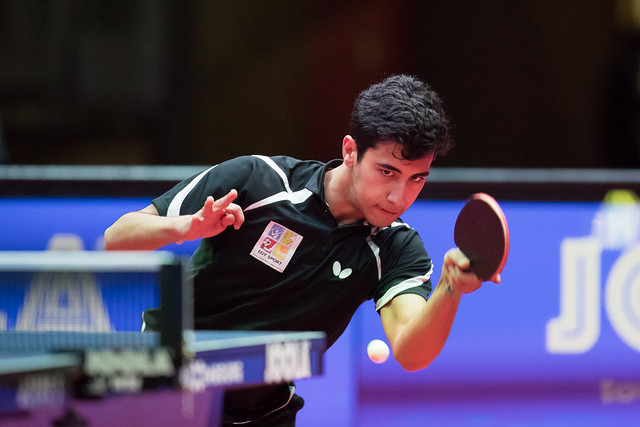by Alena Dubkova
Peter built his career quickly, winning many awards and titles from a fairly young age, notably being the coach of Georgina Pota. I spoke to him about his impressive curriculum vitae, his current role and his overall thinking on coaching now and the future in table tennis.
How many years did you work with Hungarian cadets, juniors, and senior teams?Difficult question, cadets and junior teams 1997 to 2005, senior team 2005 to 2017. So about 20 years.
How did you become involved with table tennis?When I was a child I didn’t want to play table tennis because I always wanted to play football. However, my father was President of a table tennis club and he pushed me to play. It was a women’s club and I had to play only with girls and women. Of course, for a boy, it’s not the best solution to practise every day with women. So, when I decided to be a table tennis coach, I said I would never work with women. It’s very funny because it happened!
How did you start coaching?
In Hungary after secondary school, you have to go to the army. When I was 18 years, I started to work in a high school as table tennis coach, so didn’t go to the army.
After that, I was a coach in the club. At the beginning, I was a sparring partner for girls. After six months, the head coach asked me if I wanted to work as a coach. Therefore, I worked with kids and step by step mini cadets, cadets. After four years I started to work with a junior national team. When I saw Gina for first time, she was six or seven years old. Her mother was a player in my father’s club.

What has been the best moment or title in your career?
It was my first European Championships, 2007 Serbia, as a coach of the senior team, the Hungarian team won the gold medal.
What is the most difficult aspect of coaching?
There are different people. Your role keeps them together. You have to be patient first of all. In 2007, we won the European Championships with Krisztina Toth, Georgina Pota and Petra Lovas. They have absolutely different personalities and ages. At that time, I think, it was the most important thing to keep them together, because if they are not good with each other they cannot do well as a team. In my opinion, if teamwork is effective, at 9-9 you will win.
In men’s table tennis it would seem that the “Chinese wall” has already broken. Can it happen soon in the women’s game?
I don’t think so. The Chinese players are physically better than Europeans are and are stronger in most aspects of the game. It is difficult to change it, because in Europe you have to study and go to school. In Japan and especially in China players don’t study. I was many times in China and the kids are not going to school, they are playing table tennis. How can you compete with this system? In Europe, it is very important to get the education.
Why did you decide to change teams from Hungary to Luxembourg?
It was a very difficult decision because in the past, I have had many different offers; then in 2015 a contact in Luxemburg came to me with an offer. I didn’t think about it seriously due to already being involved with Hungarian National Team. At this time, I started to think about my future. I had worked with Hungarian teams for 20 years. I thought that for players and for me it’s time for change. I have never worked abroad and I wanted to start a new life. I think it was a good decision. New experience, also for Hungarian players and it’s a good influence.
What can you tell about Luxemburg team?
In Luxemburg, it is a special situation. If we take women’s and men’s national team away, most players have normal jobs and they are not professional table tennis players. They do not practise every day.
Thanks to Peter for an interesting conversation, best wishes in Luxembourg.






